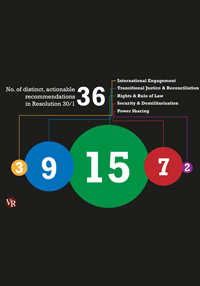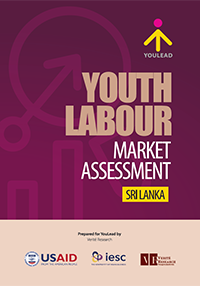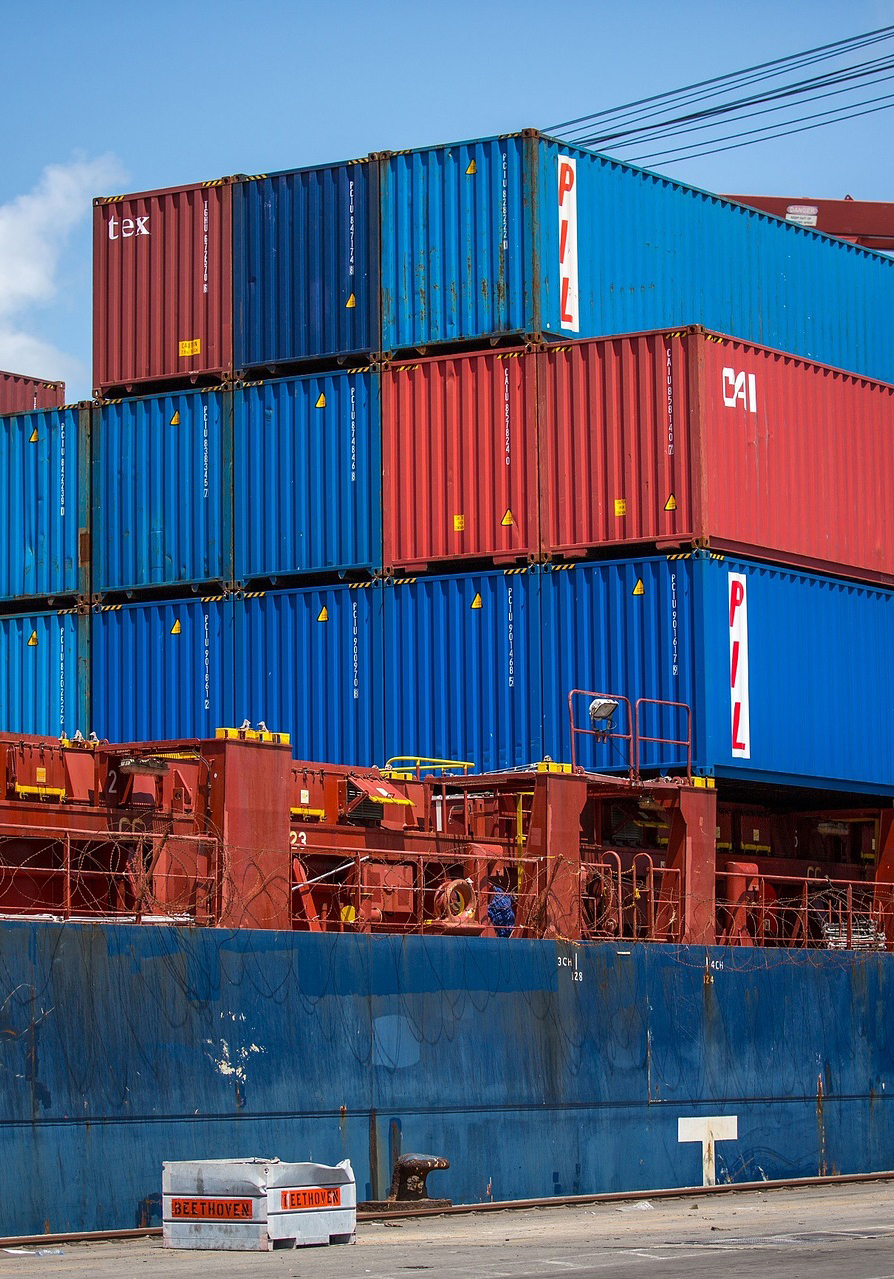This is Verité Research’s latest study on the Sri Lankan government’s commitments on reconciliation and accountability. The 40th UNHRC Session began in February 2019, and Sri Lanka’s progress in implementing Resolution 30/1 will be taken up on 20 March 2019. This report analyses the government’s progress in fulfilling all 36 commitments made in UNHRC Resolution 30/1, as at March 2019.
The Youth Labour Market Assessment takes an in-depth look at youth employment and unemployment in Sri Lanka. This report examines 4 gaps; skills gap, aspirations gap, information gap and the structural gap, which are used to explain the paradox of high youth unemployment in a country which has a large number of job opportunities available presently. Bridging these gaps, especially in the high growth sectors in Sri Lanka is a priority for policymakers. Analysis from a primary survey of 2,000 youth and 211 employers are the main data source for the report. The report provides detailed insights on unemployed youth, constrained youth, employed youth, gender and entrepreneurship training. An abridged version of the full report is also made available, and provides key findings and recommendations that are pertinent to the private sector, donor community and vocational training providers. The report was produced for YouLead, a USAID-funded youth employability and business startup programme working to improve youth employability outcomes by addressing bottlenecks in the technical and vocational education and training sector in Sri Lanka. Click here for abridged version with key findings and recommendations The data from the 2 primary surveys can be assessed below: YouLead Youth Survey YouLead Employer Survey Youth…
The Civil Society Organization Sustainability Index (CSOSI) assesses the sustainability of the CSO sector across several countries in different regions around the world. Since its inception in 1997, it has expanded from covering 18 countries in the Europe and Eurasia Region, to covering a total of 71 countries in 2017, in regions including the Middle East, sub-Saharan Africa and Asia. By using standard indicators and collecting data each year, the CSOSI enables users to track developments and identify trends in the CSO sector over time while allowing for cross-country and cross-region comparison. It is used by CSO advocates, development partners, and academics to assess international and regional trends in the civil society sector and to identify common obstacles impeding the sector’s sustainability, such as the legal environment, organizational capacity, and financial viability. This is the fourth time Sri Lanka is participating in the index. Verité Research is the local implementing partner for this initiative.
The Civil Society Organization Sustainability Index (CSOSI) assesses the sustainability of the CSO sector across several countries in different regions around the world. Since its inception in 1997, it has expanded from covering 18 countries in the Europe and Eurasia Region, to covering a total of 71 countries in 2017, in regions including the Middle East, sub-Saharan Africa and Asia. By using standard indicators and collecting data each year, the CSOSI enables users to track developments and identify trends in the CSO sector over time while allowing for cross-country and cross-region comparison. It is used by CSO advocates, development partners, and academics to assess international and regional trends in the civil society sector and to identify common obstacles impeding the sector’s sustainability, such as the legal environment, organizational capacity, and financial viability. This is the fourth time Sri Lanka is participating in the index. Verité Research is the local implementing partner for this initiative.
Verité Research and the World Bank developed a methodology to monitor online proactive disclosure of information, in accordance with the RTI Act. Verité Research then used this methodology to monitor and evaluate the online proactive disclosure of information across 55 public authorities in Sri Lanka. The report found that 20% of public authorities scored in the ‘moderately satisfactory’ band. The majority, 75% of public authorities scored within the ‘moderately unsatisfactory’ band and 5% scored ‘unsatisfactory’. No authority scored ‘satisfactory’ or ‘highly satisfactory’.
Sri Lanka and China decided to enter into a Free Trade Agreement (FTA) in August 2013 to further expand trade between the two countries. Technical negotiations, which officially commenced in September 2014, are still underway with five rounds of negotiations having been concluded. China is the world’s second largest economy, its largest exporter and its second largest importer. For a small market economy like Sri Lanka, an agreement with a country such as China presents exciting opportunities as well as daunting challenges. This briefing note provides an assessment of the challenges and opportunities that Sri Lanka is likely to face in operating under an FTA with China. Potential challenges and opportunities have been identified by analysing the key features of China’s existing FTAs with other countries.
This is Verité Research’s latest study on the Sri Lankan government’s commitments on reconciliation and accountability. The ongoing UNHRC Session began on 26 February 2018, and will include a discussion on Sri Lanka’s progress in this regard. This report analyses the government’s progress in fulfilling all 36 commitments made inUNHRC Resolution 30/1, as at 26 February 2018.
This study presents a review of the topics relevant to the debate on private sector participation in tertiary education. These include: the structure of the tertiary education sector; the legislation underlying the establishment of tertiary education establishments; and the current quality assurance and accreditation procedures for tertiary education institutions.
The original version of this report was commissioned by the Westminster Foundation for Democracy to assist in its work in Sri Lanka with the Sri Lankan parliament and political parties. The opinions expressed and contents of this report are not necessarily those held by Westminster Foundation for Democracy. The report was prepared by the politics research practice at Verité Research with Charudaththa Ekanayake functioning as principal researcher under the overall editorial supervision of Janeen Fernando.
Sri Lanka’s exports are heavily concentrated on a few markets and a few products. The government’s recognition of export diversification as an important policy strategy to revive exports, indicates that both market and product concentration are seen as critical bottlenecks in this regard. This report compares and contrasts Sri Lanka’s export product and market concentration and its export composition against that of the world and selected Asian economies. The objective of this brief analysis is to understand where Sri Lanka stands in the world and in comparison to its neighbours that have performed well in terms of export concentration and composition.







